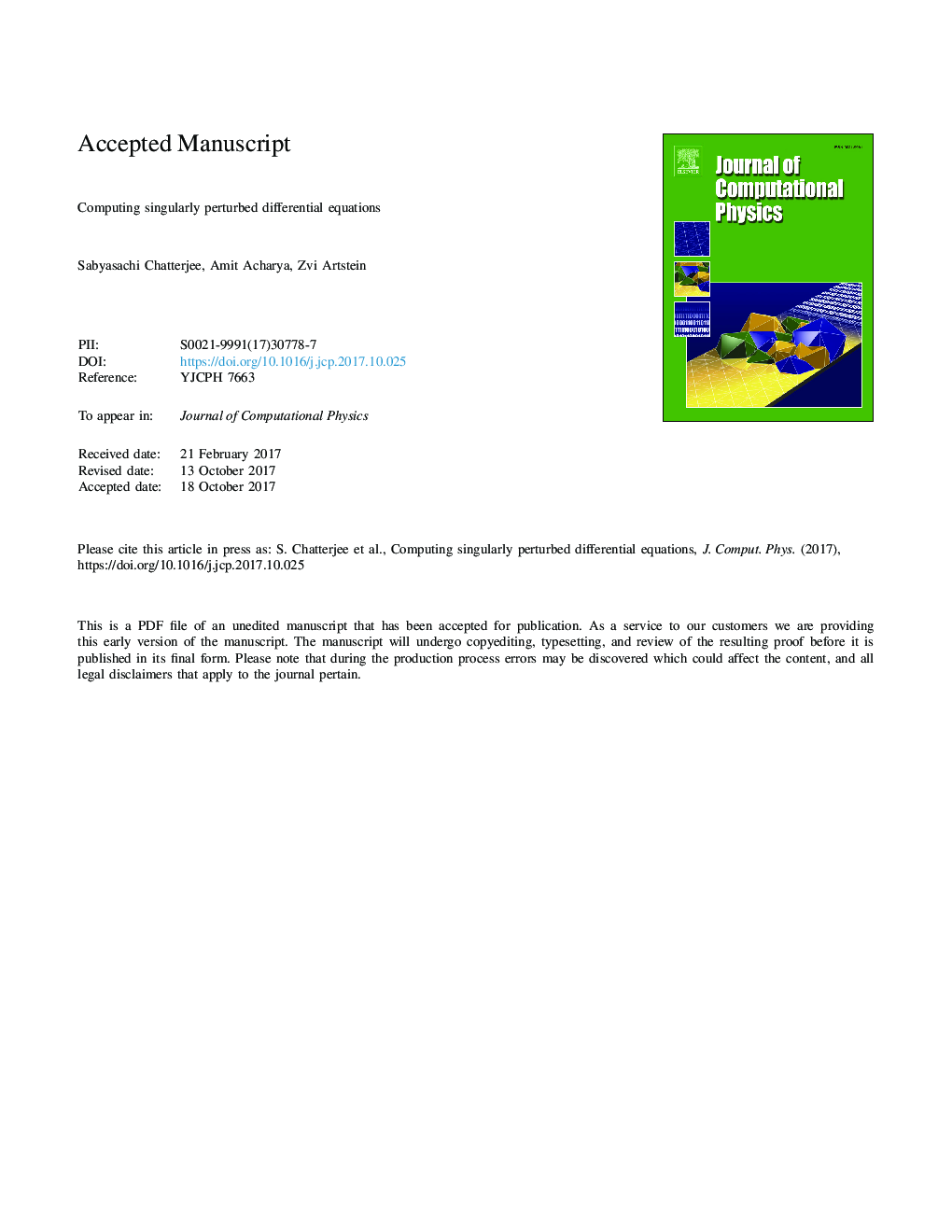| Article ID | Journal | Published Year | Pages | File Type |
|---|---|---|---|---|
| 6929302 | Journal of Computational Physics | 2018 | 48 Pages |
Abstract
A computational tool for coarse-graining nonlinear systems of ordinary differential equations in time is discussed. Three illustrative model examples are worked out that demonstrate the range of capability of the method. This includes the averaging of Hamiltonian as well as dissipative microscopic dynamics whose 'slow' variables, defined in a precise sense, can often display mixed slow-fast response as in relaxation oscillations, and dependence on initial conditions of the fast variables. Also covered is the case where the quasi-static assumption in solid mechanics is violated. The computational tool is demonstrated to capture all of these behaviors in an accurate and robust manner, with significant savings in time. A practically useful strategy for accurately initializing short bursts of microscopic runs for the evolution of slow variables is integral to our scheme, without the requirement that the slow variables determine a unique invariant measure of the microscopic dynamics.
Related Topics
Physical Sciences and Engineering
Computer Science
Computer Science Applications
Authors
Sabyasachi Chatterjee, Amit Acharya, Zvi Artstein,
